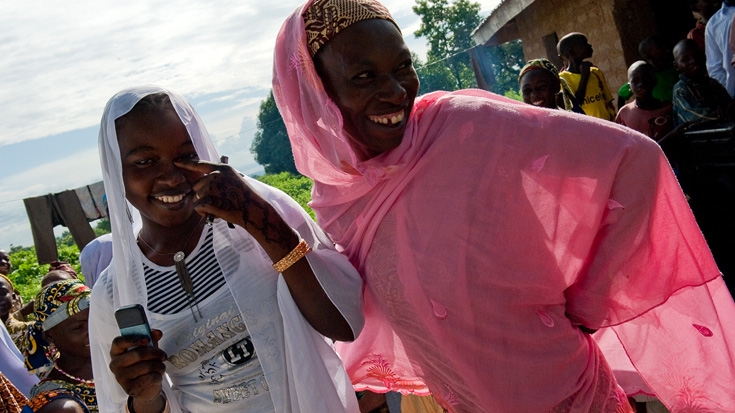WASHINGTON, May 1, 2014—The World Bank Group’s collaboration with the Federal Republic of Nigeria received a boost on April 24th with the Board of Executive Directors endorsing a new Country Partnership Strategy (CPS) that includes support for a bold and ambitious program of development targets and interventions for the next four years to 2017.
Nigeria is recognized as Africa’s largest economy, following its recent GDP rebasing initiative on which the Word Bank advised. It is the region's most populous country, its largest oil producer, and an ethnically diverse nation, with over 400 linguistic groups represented in 36 states.
The strategy’s endorsement comes at an opportune time just as Nigeria is redoubling its efforts to tackle critical development challenges and is committing itself to lift major constraints that are hindering it from achieving broad-based, inclusive economic growth and poverty reduction goals.
Nigeria has been growing at 6 to 8% annually over the past decade but now needs to achieve even higher job-led growth rates to make a dent in poverty. Another key challenge facing Nigeria is to diversify its economy and reduce its heavy reliance on oil which makes the country vulnerable to commodity price volatility.
“The new strategy is a joint product, developed in close consultation with the Government of Nigeria under the Country Assistance Framework, a strategic platform developed by Nigeria’s partners to coordinate interventions and leverage resources to deliver strong results and development solutions,” said Marie Francoise Marie-Nelly, World Bank Country Director for Nigeria. “It reflects Nigeria’s development aspirations and commits the World Bank Group to working hand-in-hand to unleash Nigeria’s potential for the benefit of all Nigerians.”
The World Bank Group’s support for Nigeria is structured around three strategic priorities:
- Promoting diversified growth and job creation by reforming the power sector, enhancing agricultural productivity and increasing access to finance
- Improving the quality and efficiency of social service delivery at the state level to promote social inclusion
- Strengthening governance and public sector management with gender equity and conflict sensitivity as essential elements of governance
